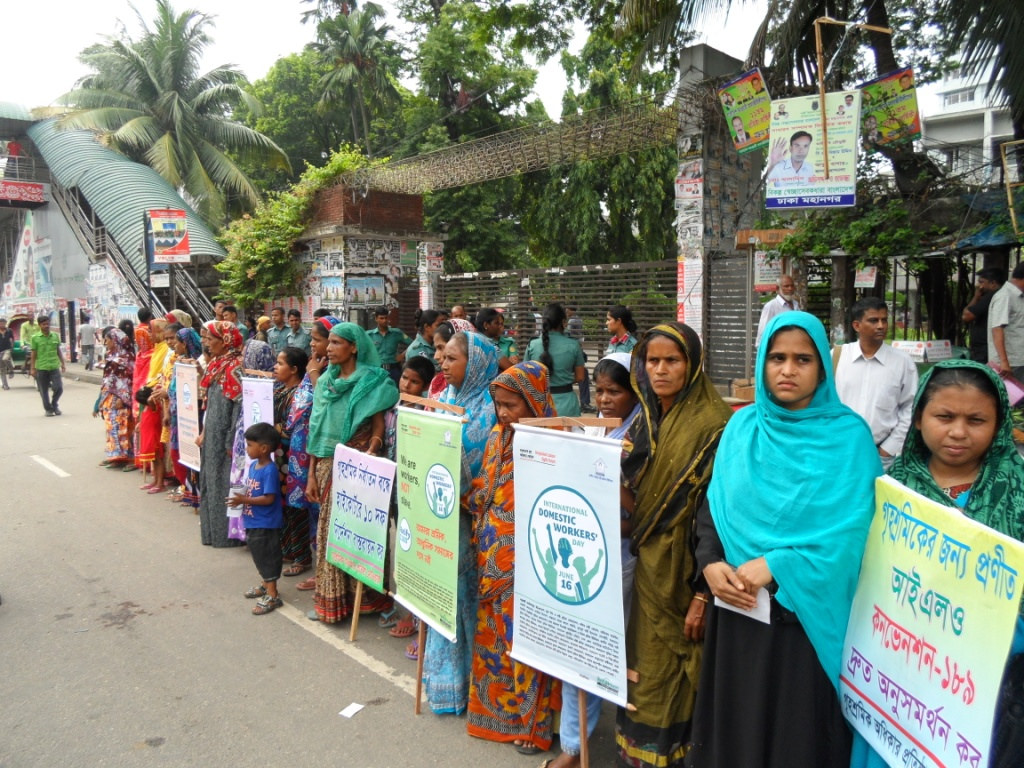
Bangladesh | Protect human rights defenders from attacks, intimidation, and murder
Human rights defenders in Bangladesh live in fear of attacks and reprisals that are often conducted with impunity. As part of the upcoming Universal Periodic Review of Bangladesh, ISHR and the Center for Social Activism call on the Bangladeshi Government to protect defenders and repeal legislation restricting their right to freedom of expression.
Next month the human rights record of Bangladesh will be reviewed as part of the 30th session of the Universal Periodic Review (UPR), a peer-review mechanism that evaluates measures taken by States to protect human rights.
In its last UPR review in 2013, Bangladesh accepted the recommendation to protect human rights defenders, including protecting their ability to conduct work without intimidation or harassment. Nearly 5 years on, intimidation, attacks, killings, and reprisals against defenders persist.
As ISHR’s Legal Counsel Tess McEvoy explains, ‘violence against defenders is in part facilitated by the stagnant progress in protection mechanisms. Bangladesh’s legal framework, coupled with a refusal to denounce attacks against defenders, gives rise to concerns over restrictions on the rights to freedom of expression, assembly, and association in relation to the space for defenders and civil society organisations to carry out their work.’
Most recently, Bangladesh enacted the Voluntary Activities Act in 2016, despite the call of the Special Rapporteur on freedom of association and assembly not to adopt the Bill. The Act allows excessive government control over NGO activities and requires NGOs to obtain permission for all projects using foreign funding or foreign contributions.
‘The legal restrictions faced by defenders and civil society organisations feed into an extremely hostile environment for those working in human rights in Bangladesh. Extreme cases against defenders have been reported, including the torture of a 19-year-old indigenous rights defender by army personnel, sexual violence or threats of sexual violence against women defenders, and murder of several defenders, where there is a lack of accountability and investigation’ continued McEvoy.
ISHR and the Center for Social Activism submitted a briefing paper on the situation of human rights defenders in Bangladesh. This submission is intended to assist States in making recommendations to the Bangladeshi government.
Key recommendations that should be made to Bangladesh include:
- Combat impunity by ensuring the prompt, thorough and impartial investigation of all violations against human rights defenders, the prosecution of perpetrators, and access to effective remedies for victims.
- Refrain from criminalising the legitimate activities of human rights defenders and repeal all laws and policies that restrict their activities and rights, including the Information Communication Technology Act of 2006 (amended 2013) and the Foreign Donations (Voluntary Activities) Regulation Act of 2016.
- Issue a standing invitation to the Special Procedures of the Human Rights Council, as well as relevant regional mandate holders, and specifically invite and facilitate visits from the UN Special Rapporteur on the Situation of human rights defenders, the UN Special Rapporteur on Freedom of Opinion and Expression, and the UN Special Rapporteur on Freedom of Assembly and of Association.
Tomorrow as part of the UPR pre-session – an initiative led by civil society – defenders will speak on the human rights situation and make calls on States regarding recommendations that should be made to Bangladesh as part of the UPR. We urge States to make recommendations in line with those calls.
The briefing paper, submitted by ISHR and the Center for Social Activism, also supported by Association for Land Reform and Development, Kapaeeng Foundation, and the Network of Non-Mainstreamed Marginalised Communities Foundation-NNMC, focused on legal restrictions to the work of defenders and on those defenders that face particular risks.
Contact: Tess McEvoy, [email protected].
Photo: Flickr_SAM7524.
